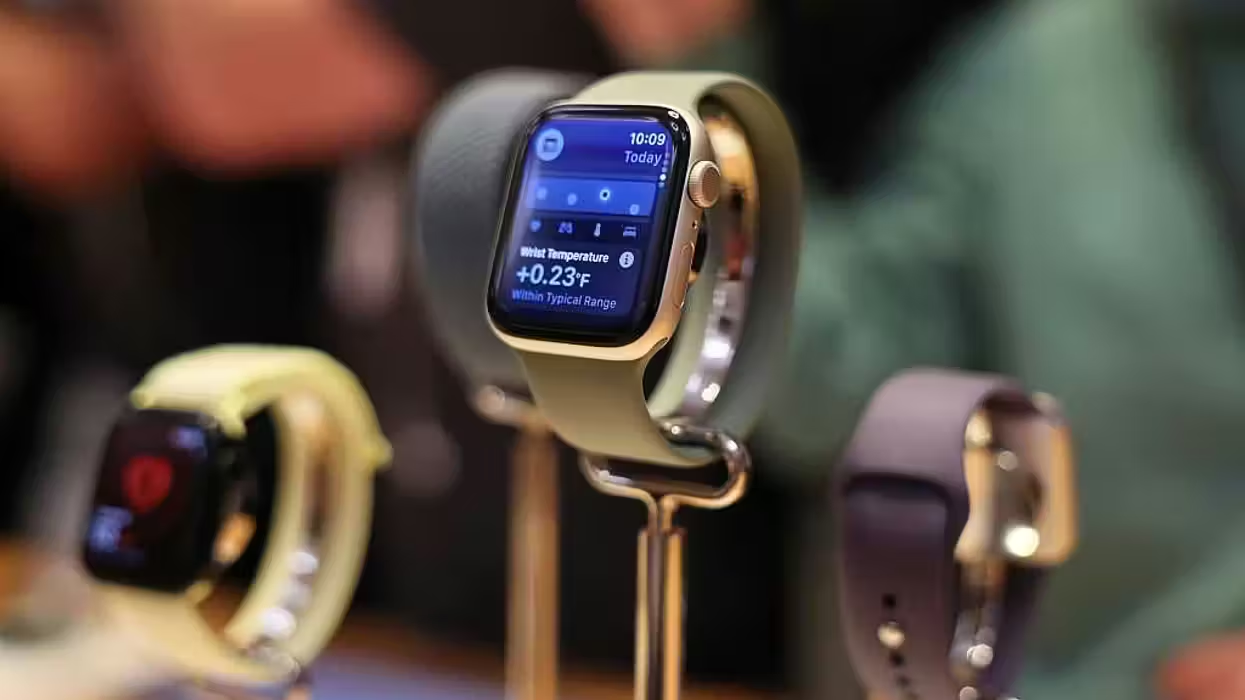
© 2025 Blaze Media LLC. All rights reserved.
What Some Lamp Posts in Chicago Will Be Able to Do and Monitor About You Has Privacy Advocates Worried
June 23, 2014
"You have to be careful."
The lamp posts lining a notable Chicago street will do more than just provide light to walkers: They will count them through nearby cellphone traffic, measure pollution and take up other metrics.
According to the Chicago Tribune, a few of these high-tech sensors will be installed on light poles along its iconic Michigan Avenue later this summer, in the hopes that the data they collect will lead to innovation to make the city more efficient. But others express caution about how this type of data collection could lead to another step in Big Brother snooping.
 A few lamp posts along Chicago's Magnificent Mile will be outfitted with sensors later this summer to track foot traffic, noise levels and air quality data. (Photo credit: Shutterstock)
A few lamp posts along Chicago's Magnificent Mile will be outfitted with sensors later this summer to track foot traffic, noise levels and air quality data. (Photo credit: Shutterstock)
"Our intention is to understand cities better," computer scientist Charlie Catlett told the Chicago Tribune. "Part of the goal is to make these things essentially a public utility."
For those concerned about privacy, Catlett told the newspaper the sensors won't collect information that identifies people, nor will they include equipment that can record audio or visual. Sound levels will be recorded as well as infrared images, the Tribune reported. Other data picked up by sensors will include various weather factors and air quality.
The project — called the "Array of Things" — is derived from the Urban Center for Computation and Data, which run through the University of Chicago and Argonne National Laboratory.
The data from the Array of Things project, which will be picked up by sensors designed by the School of the Art Institute of Chicago, will be publicly available in real-time for those interested in building apps or better understanding the city.
Cities collecting data on the streets is nothing new. New York City, for example, has license plate readers recording every car that heads into the city, and lights in a Newark, New Jersey, airport terminal hide information-collecting sensors as well.
Though Catlett said identifiable information won't be picked up by the Array of Things sensors, others think that is not enough of a safety net to protect privacy in general.
"Almost any data that starts with an individual is going to be identifiable," Fred Cate, a privacy expert and law professor at Indiana University, told the Tribune. "You may not care about the fact that it's personally identifiable. It's still going to be personally identifiable."
Gary King, director of the Institute for Quantitative Social Sciences at Harvard University, agreed, telling the newspaper that in such projects "you have to be careful."
"Good things can produce bad things," he said.
(H/T: Gizmodo)
—
Front page image via Shutterstock.
Want to leave a tip?
We answer to you. Help keep our content free of advertisers and big tech censorship by leaving a tip today.
Want to join the conversation?
Already a subscriber?
more stories
Sign up for the Blaze newsletter
By signing up, you agree to our Privacy Policy and Terms of Use, and agree to receive content that may sometimes include advertisements. You may opt out at any time.
Related Content
© 2025 Blaze Media LLC. All rights reserved.
Get the stories that matter most delivered directly to your inbox.
By signing up, you agree to our Privacy Policy and Terms of Use, and agree to receive content that may sometimes include advertisements. You may opt out at any time.





